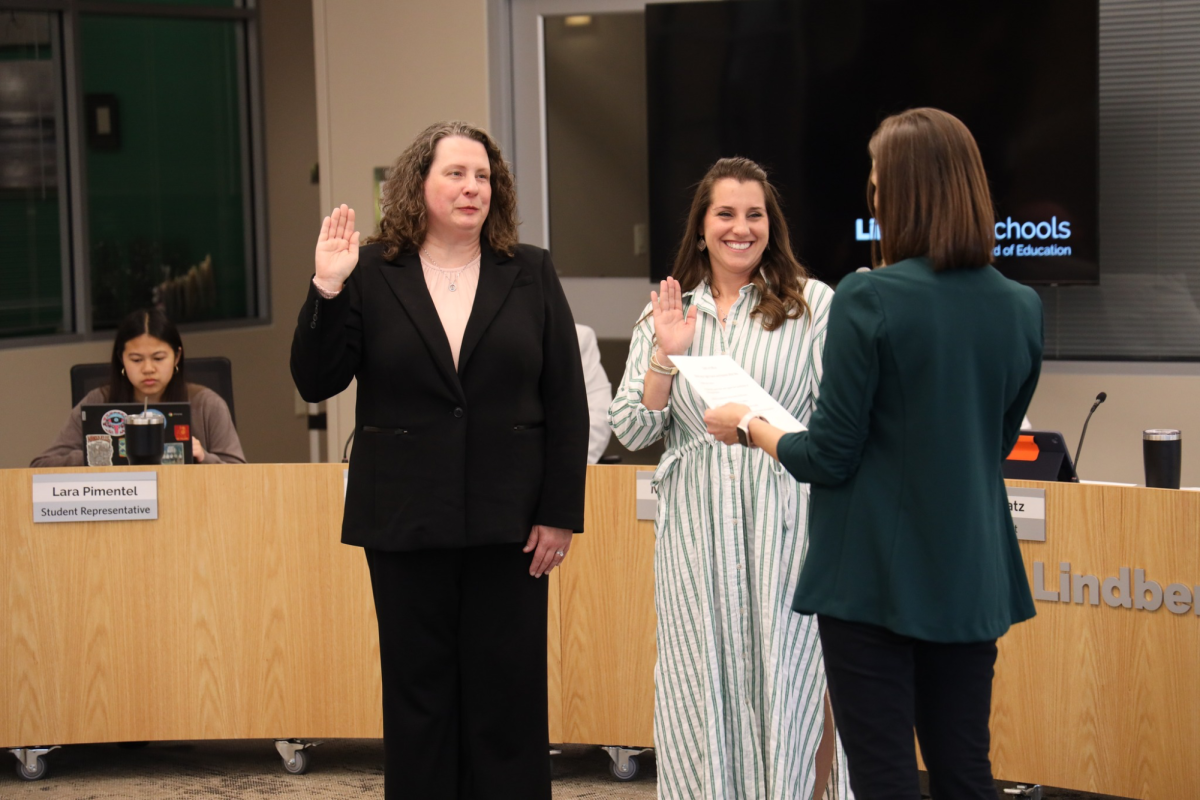In an attempt to restore the principles of “open government” and “consent of the governed” to county government, a bipartisan group of residents has formed to oppose two county decisions relating to trash.
Citizens Against Trashy Government — co-chaired by Mehlville Board of Education President Tom Diehl and former 96th District Missouri House Republican candidate Mike Becker — seeks to provide an avenue for residents to challenge both the county’s plans to establish trash districts in unincorporated areas and the county’s recent settlement of a lawsuit that will allow Fred Weber Inc. to construct a trash-transfer station in Oakville.
Lester Stuckmeyer, an attorney representing the group, said Citizens Against Trashy Government is a push to “coalesce” the efforts of numerous south county residents concerned with the county’s pending waste-management plans.
“Up to this point in time, there have been several individuals and even some other groups that have all worked on this issue in one way or another,” he said. “And what we’re trying to do is coalesce these groups together so that we all have shoulders to the wheel and we’re all kind of pushing.”
While Stuckmeyer is hesitant to reveal the group’s legal “playbook,” he did say that he and others are studying numerous legal options to oppose the trash districts and trash-transfer station.
After years of legal battles and previous denials of the trash-transfer station by the County Council and county Department of Health, County Counselor Pat Redington agreed in October to a settlement with Fred Weber Inc. to construct the Oakville station. Redington has said that because Weber now has adhered to concerns from the county departments of health, planning and highways for the station, she sees no need to continue legal opposition to it.
But Stuckmeyer, who has represented residents who live near the station site on Baumgartner Road, believes Weber’s alterations to the station should be decided by the County Council and not settled in court.
Becker echoed that sentiment, saying he believes Redington’s settlement was not only offensive, but also a possible violation of the Missouri Open Meetings and Records Law, also known as the Sunshine Law.
“Regarding the settlement of the Weber lawsuit for the trash dump in south county, the county health department and the County Council had both found the imposition of the Weber trash dump at the south county site to be undesirable and nuisance,” Becker said. “Now the county attorney has settled the lawsuit, closing out the power of the county to appeal an adverse court decision without the consent or notice to her client — the County Council — and without public disclosure of the settlement.
“It’s a clear violation of the Sunshine Law. If this decision is allowed to stand, it will be a total victory for secret, back-room deals over open government. No government lawyer has the power through a secret deal to overturn government policy reached through public hearings and open votes.”
As for the proposed trash districts, which are planned to be implemented by September in all unincorporated areas and will have one County Council-approved trash hauler per district, Diehl said the districts are nothing more than a “monopoly.”
“When it comes to trash policy, the county government is starting to look like an old-time, big-city machine,” Diehl said. “It’s trying to impose a monopolistic trash system across the county that the citizens don’t want to squeeze out the competition and give controlling politicians a patronage windfall. The result will inevitably be higher prices for trash service for all residents and businesses through fewer competitors and higher taxes to subsidize this program.”
Diehl also believes that two of the county’s goals through trash districting — increasing recycling and decreasing truck traffic in residential areas by limiting the number of haulers servicing certain areas of the county to one — can be accomplished without districts.
“There’s nothing that prevents municipalities or subdivisions from establishing their own service where they limit that truck traffic,” Diehl said. “But that is their free choice. Subdivision residents can vote. They can work with their subdivision trustees to establish a program that would have a single hauler if they so choose.
“What this has done, though, has taken that choice out of the hands of the residents and placed it in the hands of the county health department. If you use the logic of the county, why don’t we just go with Fed Ex and keep UPS out of the subdivisions to cut down that wear and tear?
“Or maybe we could have just one restaurant chain delivering pizzas. You could take it all kinds of extremes. And we don’t see why it has to be something that’s imposed on us and costs us our tax dollars when it’s specifically going to hurt competition in St. Louis County.”
Referring to the group’s goals of “open government” and “consent of the governed.” Diehl also said that the manner in which the County Council approved the formation of trash districts in December 2006 and the county’s subsequent redrafting and continuous change of those districts’ implementation is proof that county government has not been open to the public.
“We have a tradition in this country of open, spirited, public debate,” he said. “We have a government that’s designed to allow public participation for public hearings through the County Council. And this trash-district plan as it’s been presented was developed behind closed doors. It was designed to give the large waste haulers in the St. Louis County area the ability to drive out the small, independent businesses. What that’s going to do is not only for the people in the trash districts that are proposed, but across St. Louis County. It’s going to eliminate competition and it’s going to drive up our trash prices. It’s going to decrease the quality of service. And we feel that is just a misuse of government policy and power.”
“… I think part of the problem with the legislation that was passed last year is reflected in how they’re trying to implement the trash-district plan right now,” he said. “If you look at the record over the last five or six months, the county’s plan and who can opt out, who cannot, who would be able to participate as a hauler, all of that changes continuously.
“And at the time last December when they passed the solid-waste changes, we were told that this would be an opt-in program. And that was an idea that was told to us by people in the county government and (former) Councilman (Skip) Mange. At the last minute, the change gets slipped in that it’s going to be an opt-out program. So I think that’s where a lot of frustration on the part of citizens comes from. It’s the fact that we’re told one thing and something else takes place at the last minute.”





















